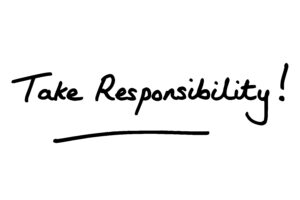Insights and advice on the art and science of communicating well
The Hidden Cost of Poor Communication in Business: Insights and Implications
In the high-stakes world of business, effective communication is often heralded as a critical driver of success. Yet, despite its importance, many organizations struggle with poor communication, leading to significant, often hidden costs. Research from McKinsey & Company sheds light on these costs, revealing the far-reaching impact of communication breakdowns on organizational performance and employee…
The Power of Our Words: Embracing Responsibility in Communication
We’ve all been there: in the midst of a conversation, a comment slips out, and in hindsight, we wish we could take it back. Words, once spoken, can’t be unsaid. This truth is central to Dr. Demetria McNeal’s insightful book, You Don’t Say. She delves into the profound impact our words have on others, urging…
Mastering Clarity in Communication: Insights from Chapter 2 of the Amazon bestseller, You Don’t Say
Effective communication is the cornerstone of successful relationships, whether personal or professional. In Chapter 2 of You Don’t Say, the focus is on the crucial skill of saying what you mean. This chapter delves into the importance of clarity in communication and provides actionable strategies for ensuring that your messages are both understood and impactful.…
Training Others to Communicate with You: It is Your Responsibility Not Theirs
Effective communication is vital for building strong relationships, whether in personal or professional settings. However, getting others to communicate with you in a way that feels right can sometimes be challenging. Training people to understand and adapt to your preferred communication style involves a blend of communication science principles and a human-centric approach. Here’s a…
How attached are you? Understanding attachment styles and their Impact on communication
Attachment styles, a concept rooted in psychological research, significantly influence how we interact and communicate with others. These styles, developed early in life through interactions with caregivers, shape our approach to relationships and communication throughout adulthood. Understanding attachment styles can offer profound insights into our communication patterns and help us foster healthier, more effective interactions.…
Where We Learn to Communicate: From Family to Work and Beyond
Communication is a fundamental skill that shapes our relationships and interactions throughout life. We learn how to communicate from various sources: our family, friends, workplaces, and social environments. While these sources provide valuable lessons, they can also impart less effective communication habits. Understanding where we learn communication and recognizing the pitfalls can help us improve…
Embracing Communication Vulnerability: Building Safety, Security, Trust, and Support
In today’s fast-paced world, where digital interactions often take precedence over face-to-face conversations, the concept of communication vulnerability is more crucial than ever. Communication vulnerability involves opening up and sharing our true selves, our fears, and our needs with others. But for this vulnerability to be effective and meaningful, several foundational elements must be in…
Communication reveals what is in the heart
Body language, behavior, and words we choose to use are byproducts of thoughts, feelings, and experiences. The two are inextricably linked. It is inevitable that what we feel inside will eventually come out. It can come out by shouting at people who have no idea of what is going on. It can come out by…
The holidays may not joyful for everyone
When the colors of the leaves change and the temperature drops outside and we roll the clocks back one hour, to many of us that signals the holiday season is approaching. We may start planning holiday meals or scribble lists of gifts we plan to give over the next several months. It can be a…
Write this to change your communication habits
It is easy to believe that communication is primarily vocal. However, communication can be complicated as it is comprised of many factors that we observe to make meaning of what we are seeing and hearing. For example, we consider body language, voice tone, vocal variety, and actual words, among other things. However, reflecting on communication…








